1. Introduction
Shanghai Theatre Academy (STA) is a comprehensive university of performing arts, with the focus on theatre training and studies and a history of almost 70 years. Co-sponsored by the Ministry of Culture of China and the Shanghai Municipal People’s Government, and reporting to the Shanghai Municipal Education Commission, STA is one of the best art institutions of higher education in China. After decades of development, STA has grown from a single discipline school into an outstanding comprehensive university of performing arts in China.
On December 1st, 1945, the predecessor of Shanghai Theatre Academy - Shanghai Municipal Experimental Theatre School - was founded by well-known educators Gu Yuxiu and famous dramatists Li Jianwu, Gu Zhongyi, Huang Zuolin, Wu Renzhi at 1844 Sichuan Road, with Xiong Foxi as the first president. In October 1949, the school was renamed as Shanghai Municipal Theatre School. In the structural reform of colleges and universities in China in 1952, the Theatre Division of Shandong University/Art Department and the Theatre Group of Shanghai Xingzhi Arts School joined the school, which became the East China Branch of the Central Academy of Drama under the Ministry of Culture of China. In 1956 the school was formally renamed as Shanghai Theatre Academy as an art university under the Ministry of Culture. In June 2002, the Performing Arts School of Shanghai Normal University, the Shanghai Chinese Opera School and the Shanghai Dance School were incorporated into Shanghai Theatre Academy. The teaching experience over six decades has formed the rich art atmosphere and inclusive cultural environment in the academy.
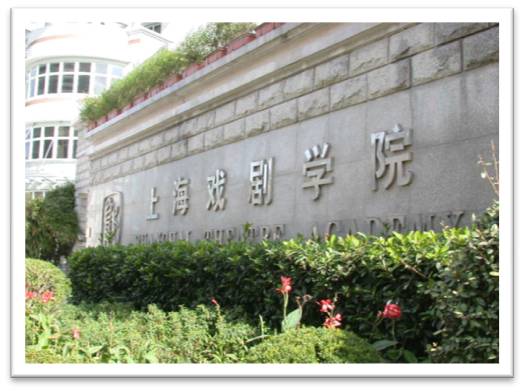
There are three STA campuses located on Huashan Road, Lianhua Road, and Hongqiao Road, respectively. In STA there are four departments (Department of Acting, Department of Stage Design, Department of Directing, and Department of Dramatic Literature), and four colleges (College of Chinese Opera, College of Dance, College of Television Arts, and College of Creativity Studies). Besides, there are two key national professional pre-college schools affiliated to STA: the Chinese Opera School and the Dance School. There are also College of Continuing Education, the Training Center, and an affiliated High School of Arts.
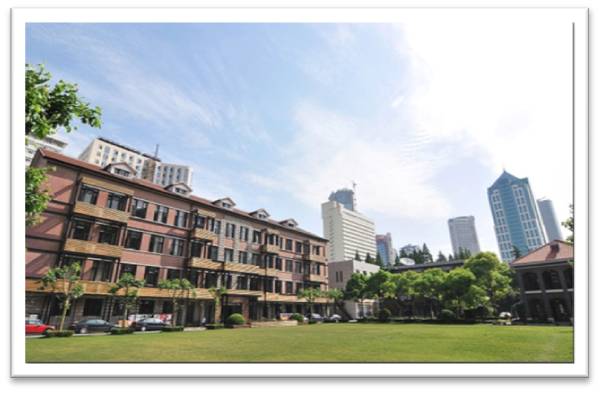
The Academy provides undergraduate programs in 37 specialties under three main categories of literature, management and education, covering 12 majors of Acting, Directing, Theatre/TV/Film Design, Art Design, Playwriting and Screenwriting, Broadcasting and TV Hosting, TV & Film Programming and Directing, Choreography, Public Administration, Arts Education, Media Creativity, and Composition and Theories. STA has six master’s degree programs in Theatre Studies, Broadcasting and TV Studies, Arts Studies, Dance Studies, Cinema Studies, and Painting Studies, one doctorate degree program in Theatre Studies with 8 research areas, and one post-doctoral research center in Arts Studies.

At STA, Theatre Studies is rated as a state-level key discipline, and Broadcasting and TV Studies as a key discipline in Shanghai. In recent years, the majors of Stage Design, Dramatic Literature and TV & Film Programming and Directing have grown into state-level majors, and many courses have been listed as municipal-level key courses. In addition, STA has set up several national experimental studios of creative training, laboratories co-funded by the central and local governments, and a key laboratory in Shanghai.
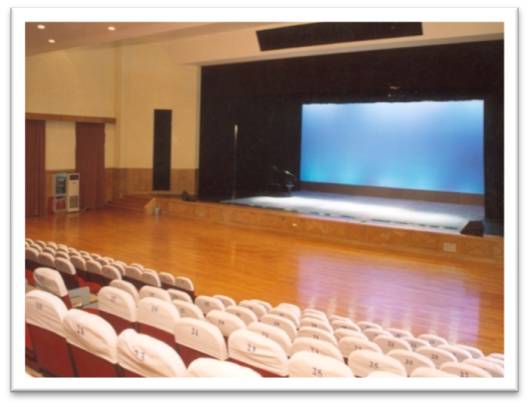
STA has about 2000 undergraduate students, 500 master and PhD students, and 1000 students in the two professional pre-college schools. On the campus there are tow professional theatres – the Academy Theatre and the Duanjun Theatre – for all kinds of educational practices and formal performances. The New Space and the two Black Box studios are used for the free experimental performances of modern drama. In addition, there are also two performing studios for comprehensive rehearsing, and two studios for the educational practices of film and TV, which can satisfy all kinds of needs for education, research and students’ performance. The three campuses all have their own specialized classroom buildings, multifunctional comprehensive classroom buildings, and information centers. The digital teaching and management platforms can connect different campus. Our students also enjoy the good living conditions offered by the students’ dormitory, the dining halls, the gymnasium and all kinds of sports facilities.
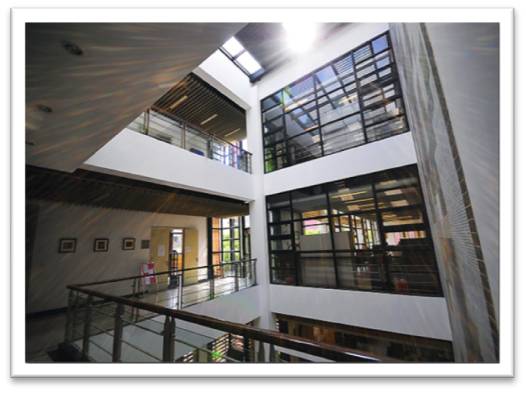
STA has cultivated thousands of artists in various professional fields for the country, and many of the graduates have become leading experts and artists with national and international reputation in the fields of drama, Chinese opera, film & TV, dance, literature and fine arts. Meanwhile, the academy has also cultivated a large number of talents for cultural management, who are now working in important posts in art institutions home and abroad, as well as in related government agencies. STA is also contributing to the art education for the minorities in China. It has trained five acting classes for Tibet students in turn, and the graduates formed the first modern drama troupe in Tibet. STA has trained one acting class for Inner Mongolia students, and the graduates formed the first modern drama troupe in Inner Mongolia. Besides, there is also one diploma program for minority scriptwriters in China, three stage art classes for Tibet students, and several classes on acting, directing and stage design for the minorities in the provinces of Guangxi, Yunnan, Qinghai and Xinjiang. In the process of development STA has extended its previous teaching model the integrating teaching, creation and performance into the chain of ideas, teaching, creation, performance, research and promotion for training acting talents, which responds to the process of artistic creation and production.
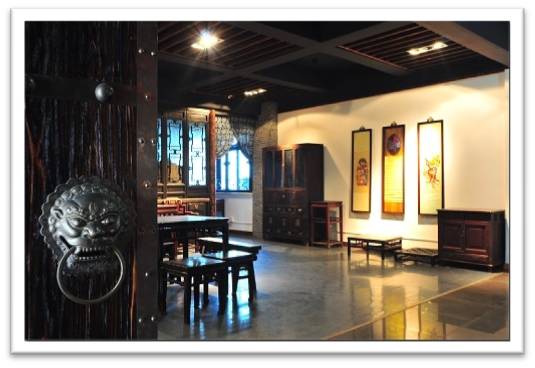
Meanwhile, STA has produced many great plays of profound influence, such as modern dramas “The Young Generation”, “Youth of the Fight”, “Black Steed”, Beijing opera “Women General of Yang Family”, dance theatre works “The White Hair Girl”, “Wild Zebra” and “Farewell My Concubine”. In the recent few years, many outstanding artistic works have been produced in the process of educational reform, such as multimedia stage drama “Prince Himalayas”, new media dance drama “Civilization - Totem”, new media recital drama “Red Motto”, multimedia musical “Monk Hongyi”, first exhibition drama in China “Year 1978”, musicals “Long River”, “A Moment of Eternity”, “Notre Dame”, dramas “Buddha Ridge”, “The War in 1948”, Beijing opera “Royal Concubine Yang of Tang Dynasty”, “The Legend of Deification”, “Ripples Across Stagnant Water”, ballet “Four Seasons”, dances “Spring Butterflies”, and “Shao Duoli”. These productions have been presented at Grand National Theatre, Shanghai International Art Festival, and Shanghai Grand Theatre. With the funding mainly from off-campus sources, these productions both serve as part of the professional education and satisfy the needs of people for cultural enjoyment.
In recent years, STA has participated in several important national projects. For example, in the core creation team for the opening and closing ceremonies of 2008 Beijing Olympic Games, four out of the seven chief designers are the teachers or graduates from Shanghai Theatre Academy, including the visual effect designer, modeling designer, lighting designer and stage designer. Besides, some postgraduate students worked as computer art designers and fireworks managers. They are highly commented by the media as “STA Creative Taskforce”. In the Expo 2010 Shanghai China, the Virtual Simulation Laboratory for Multimedia Performance of STA took the task to establish the evaluation center for exhibitions and shown in the Expo, and set up the joint laboratory with the ICT Department of Coordination Bureau of Shanghai World Expo to test and assess the planning and operation of the Expo. In addition, over 200 dance students performed at the opening ceremony of the Expo.
STA is devoted to promoting artistic and academic exchanges, playing an increasingly important role in the field of theatre education in Asia and the world. STA hosts the headquarters of the Asian-Pacific Bureau for Theatre Schools of UNESCO Chair - International Theatre Institute. It has held several international art, cultural and academic exchange programs, including the International Experimental Theatre Festival, Asia-Pacific Theatre School Expo, International Directors Masterclasses, and International Forum of Art School Directors. STA has entered into cooperation with art colleges and institutes from over twenty countries and regions.
Based on the demand for art talents in Shanghai and China, as well as for the academy’s sustainable development, STA will constantly optimize its academic programs and improve the teaching capacity to build a training system for high-quality creative talents, so as to develop into a top-level comprehensive performing arts university with international reputation.
2. International Exchange
Shanghai Theatre Academy has conducted academic exchange and cooperation programs with nearly 30 countries and regions all over the world. It has also set up mutually beneficial cooperative relationship with many universities, including St. Petersburg State Academic Institute of Theatrical Arts, Tisch School of the Arts at New York University, Yale School of Drama, Japan Mysashino Art University, Rome Arts University in Italy, Bologna Painting School in Italy, Birmingham Institute of Art and Design in UK, and School of Creative Media in City University of Hong Kong. STA faculty and students have visited those world famous universities and conducted many activities, including exchange performances and short-term study programs. We have visited many different countries and regions, including Singapore, Japan, England, France, Italy, Germany, Austria, Australia, USA, Korea, Malaysia, Thailand, Belgium, Romania, Mexico, and Hang Kong, Macao and Taiwan. Students from more than 50 countries and regions have come to Shanghai Theatre Academy for educational and research programs. STA is devoted to building high-level international exchange programs, such as the Theatre School Directors Forum, International Experimental Theatre Festival, and the Asian-Pacific Bureau for Theatre Schools of UNESCO Chair - International Theatre Institute. Through these programs, STA has expanded international vision of its faculty members and students, while its international reputation grows.
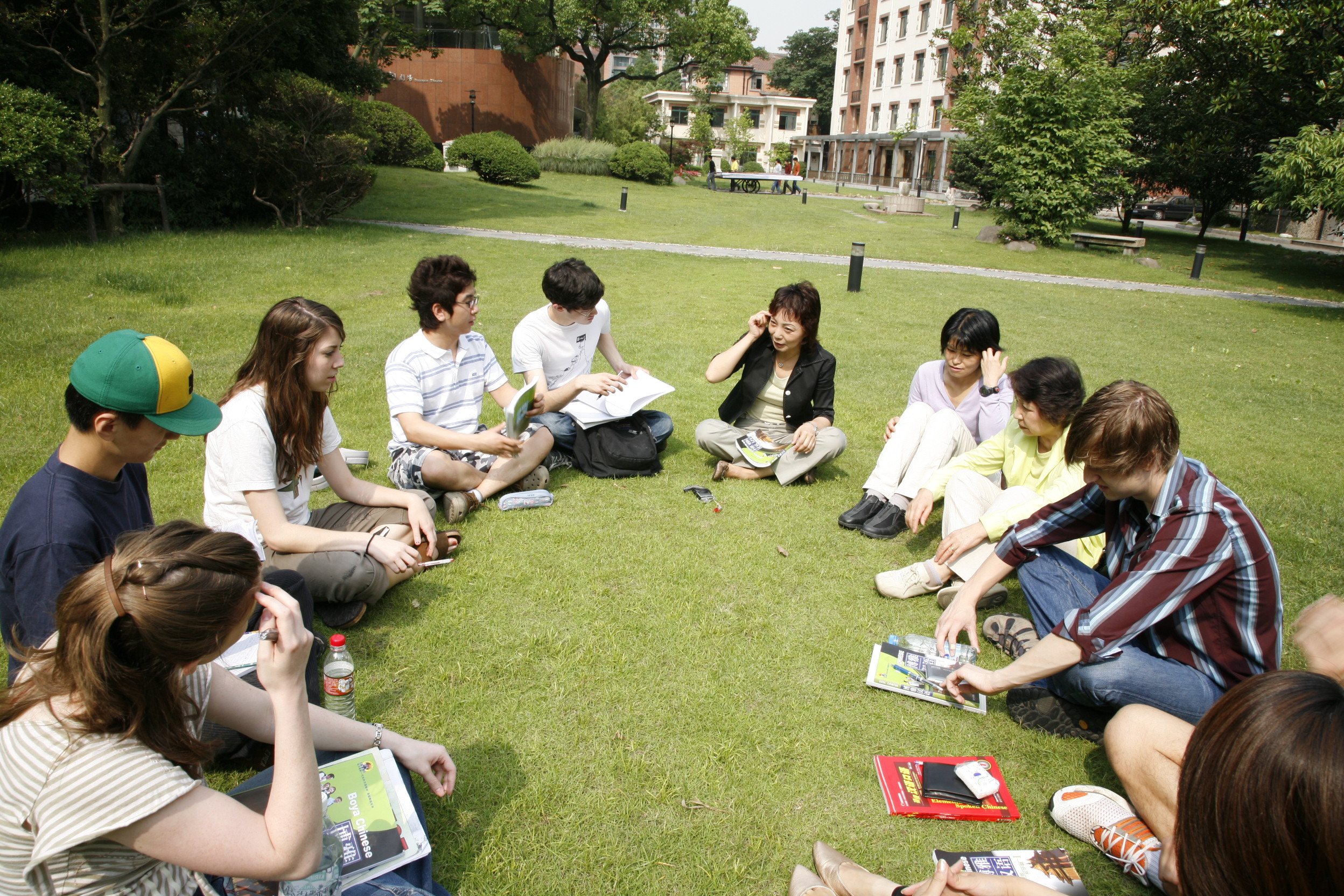
3. Campuses and Departments
Huashan Road Campus Department of Acting
Department of Directing
Department of Dramatic Literature
Department of Stage Design
College of Creative Studies
College of Continuing Education
Division of General Courses
Division of Social Sciences
Lianhua Road Campus College of Television Arts
College of Chinese Opera
College of Dance
Affiliated Chinese Opera School (Pre-college)
Hongqiao Road Campus Affiliated Dance School (Pre-college)
4. Main Teaching and Research Divisions
Teaching Affairs Division
Research Division
Division of Graduate Studies
International Cooperation Office (School of International Students)
Center for Theatre and Chinese Opera Studies
Center for Broadcasting and TV Art Studies
Center for Fine Art Studies
Richard Schechner Center for Performing Studies
John Howkins Research Center on Creative Economy
Shanghai Creative Industry Association (Secretariat)
Asian-Pacific Bureau for Theatre Schools of UNESCO Chair - International Theatre Institute
5. Undergraduate Majors (4-year programs)
No. Major Specialty Detail
1 Acting Acting for theatre, TV & film
Acting for musical
Acting for Chinese opera
Beijing Opera instruments
Folk music instruments
Kun Opera instruments
Acting for Chinese opera musical
Puppeteering
Puppeteering for hand puppet
Puppeteering and puppet-making
Ballet
Classical dance
Folk dance
Ballroom dance
Children’s musical
2 Directing Directing for theatre, TV & film
Directing for Chinese opera
3 Dramatic Literature Playwriting
Dramatic theories
Screenwriting
4 Drama, TV & Film Design Stage design
Lighting design
Costume and makeup design
Theatre management
Costume and makeup design for Chinese opera
5 Broadcasting and TV Hosting
6 TV & Film Programming and Directing
7 Choreography
8 Art Design Graphic design
Interior design
Game, cartoon & animation design & production
Visual expression
9 Arts Education Educational theatre
10 Public Administration Culture and creativity management
Visual art exhibition
Auditory art exhibition
Community culture management
11 Media Creativity
12 Composition and Theories Arrangement for arias and music of Beijing opera and Kun opera
6. Postgraduate Programs
MA
Majors & Research Areas
050401 Fine Arts Studies
_ 01 Visual arts
_ 02 Aesthetics of literature and art
_ 03 Arts education
_ 04 Arts management
_ 05 Aesthetics of folklore
_ 06 Theatre archeology
_ 07 Chinese art history
_ 08 Studies on costume art and culture
050405 Theatre Studies
_ 01 History and theory of Chinese opera
_ 02 History and theory of modern Chinese drama
_ 03 History and theory of international drama
_ 04 Studies on playwriting
_ 05 Social performing studies
_ 06 Studies on directing
_ 07 Studies on acting
_ 08 Studies on stage design
_ 09 Studies on lighting design
_ 10 Studies on costume and makeup design
_ 11 Studies on lighting techniques
_ 12 Comedy studies
050406 Cinema Studies
_ 01 Practical film theories
_ 02 Studies on film culture
050407 Broadcasting & TV Studies
_ 01 Theories of screenwriting
_ 02 Studies on TV programming
_ 03 Studies on TV hosting
MFA (full-time program)
Majors & Research Areas
550102 Theatre
_ 01 Acting for theatre
_ 02 Directing for theatre & Chinese opera
_ 03 Playwriting for stage and screen
_ 04 Arts management
_ 05 Social performing studies
_ 06 Stage design
_ 07 Lighting design
_ 08 Character design
_ 09 Costume design
_ 10 Acting and directing for comedy
550103 Chinese Opera
_ 01 Acting for Chinese opera
550105 Broadcasting & TV
_ 01 Directing for theatre
_ 02 TV & film programming and directing
_ 03 TV hosting
550106 Dance
_01 Dance
550107 Painting
_01 Oil Painting
550108 Art design
_ 01 Visual arts
_ 02 Digital art design
MFA (part-time program)
Major & Research Areas
Theatre
Chinese opera
TV & film
Dance
Art design
Arts management
PH.D
Major Research Areas
Theatre Studies Performing studies
History and theory of Chinese opera
History and theory of modern Chinese drama
History and theory of international drama
Acting and directing studies
Studies on stage design and history of performance
Visual culture
Studies on western theatre culture
Fine Art Studies – level 1
Post-doctoral research center
7. Department of Acting
In the Department of Acting there are 36 faculty members, including 2 professors and 9 associate professors.
The main courses are: acting, acting theories, voice, speech, movement, introduction to arts, and so on. The key courses are “acting in scenes” and “acting fundamentals”.
With the principle of “inheriting good tradition, innovating teaching ideas and enriching teaching methods”, Department of Acting has made good achievements in teaching, acting and research through the international exchange, master classes, workshops and creative studios, winning the attention and praise home and abroad.
Ethnic minority students make a highlight in the department. It has trained several acting classes for the undergraduate students from Tibet and Inner Mongolia, making great contribution to the unity and development of ethnic groups in China.
Many faculty members in the Department of Acting have won awards such as the “Yucai Award” in Shanghai, and “Best Director Award” in the “Golden Lion Award” of Chinese drama.
As one of the most important departments in STA, the Department of Acting has been growing with the academy since its founding. By now it has cultivated numerous acting talents in the fields of stage drama, TV & film, and musical. More than 100 students have won various grand awards, such as Hundred Flowers Award, Golden Rooster Award, Golden Hawk Award, Plum Blossom Award, Golden Lion Award, Wenhua Award, Huabiao Award, and Magnolia Award. It is the cradle of acting artists in China.
8. Department of Directing
In the Department of Directing there are 11 faculty members, including 3 professors, 3 associate professors, 3 lectures and 2 instructors. Many of them have won “Fok Ying Tung Education Foundation Award” issued by the Ministry of Education, the “Bao Steel Excellent Teacher Award” and the “Yucai Award” in Shanghai, the “Aurora Award” issued by Shanghai Municipal Education Commission, as well as the special subsidies granted by the State Council. They have covered all the stage drama awards in China, including: Excellent Drama Award of the National Stage Art Classic Project, Wenhua Award, Excellent Director Award, Excellent Drama Award, the Five No.1 Project Award by Publicity Department of China, “Best Director Award” in the “Golden Lion Award” of Chinese drama, and the Excellent Director Award in China Drama Festival.
The department offers several teaching programs on Directing for Theatre, TV & Film for all kinds of students, from non-degree students, to undergraduate, postgraduate and PhD students.
The main courses are: fundamental theory of directing, basic training on acting, directing of scenes, creating many-act plays, and TV & film directing fundamentals, etc. Among them the “Exercise of directing elements – topical sketches on articles” was selected as a model course in Shanghai, and the “Exercise of directing scenes” was selected as a key course in Shanghai.
9. Department of Dramatic Literature
The Department of Dramatic Literature hosts three majors: Playwriting and Screenwriting, Public Administration, and Arts Education.
The main courses are: playwriting and its theory, dramatic theory and theoretical writing, history of Chinese opera, history of modern Chinese drama, history of foreign drama, basic playwriting theory, original theatre workshop, selective reading of famous Chinese and foreign dramas, acting theory and practice, operation and practice of art projects, etc.
Out of the 25 faculty members there are 7 professors, 4 associate professors, of whom 8 hold PhDs. There are two “national experts with outstanding contribution”, one “outstanding expert by Ministry of Culture”, one chairman and one vice chairman of national academic associations, and two chairmen and two vice chairmen of municipal-level academic associations.
The department has achieved a great deal in developing courses and textbooks. The History of Chinese Opera was selected as a national model course. The History of Modern Chinese Drama, Playwriting Theory and Skills, and Basic Playwriting Theory are selected as key courses in Shanghai. Textbooks “Playwriting Theory and Skills” and “History of Modern Chinese Drama” have won first and second prizes of good textbooks in higher education in Shanghai in 2007.
10. Department of Stage Design
The Department of Stage Design hosts the major of Theatre, TV & Film Design, which includes three specialties: stage design, lighting design, and costume and makeup design, as well as art design and theatre management.
There are 39 faculty members working in this department, including 9 professors and 6 associate professors.
The main courses are: history of Chinese and foreign fine arts, history of Chinese and foreign architecture, history of Chinese and foreign costumes, history of theatres, stage design, lighting design, makeup design, costume design and others.
The department is taking the lead nationwide in academic achievements, teaching, research and design. Design teachers have been nominated for many times in the “Wenhua Stage Art Award”, “Bao Steel Art Award”, “Bao Steel Education Award”, “Bao Steel Excellent Teacher Award” and “Grand Award”. They have won the second prize of “national college education achievement award” by Ministry of Education and the first prize of “Shanghai college education achievement award”. Three teachers were granted the title of the “Aurora Scholar”. From 2008, the major Art Design for theatre, film & TV has received the special funding from Shanghai Municipal Education Commission for three years on end. In 2008 many teachers of the department worked as key designers for character and stage design in the opening and closing ceremonies in the Beijing Olympic Games and Special Olympic Games, and received the award of “outstanding individual”. The Costume and Makeup Studio has received the honor of “Excellent Teaching Team” issued by Shanghai Municipal Education Commission.
11. College of Television Arts
The College of Television Arts hosts two majors: TV & Broadcasting Programming and Directing, TV Hosting. There are 18 faculty members in the department, including 5 professors (2 with senior professional titles), and 4 associate professors. Broadcasting & TV Studies is selected as key major in Shanghai. The teaching team for TV hosting program is entitled the municipal level teaching team for higher learning in Shanghai. The major of TV & Broadcasting Programming and Directing is a national specialized major with the honor by Ministry of Education and Ministry of Finance. TV & Broadcasting Programming and Directing and TV Hosting also won the title as level 1 specialized major in Shanghai.
The main courses in TV & Broadcasting Programming and Directing are: exercise of playwriting elements, sketch writing, TV screenwriting, basic acting and directing, theory and skills of TV program directing, interview and news writing, documentary making, broadcasting programming, TV program planning, MV and CF making.
Main courses in TV Hosting are: TV hosting theories, reading of TV hosting programs, vocal training for hosting, writing for hosting, language for hosting, space skills for hosting, hosting program planning.
Among them there are two model courses in Shanghai: documentary making, TV program planning; and four key courses in Shanghai: writing for hosting, basic acting and directing, theory and skills of TV program directing, language for hosting.
The teachers of the college have received many awards, including the "Five-One Project" Award, Flying Sky Award, Huabiao Award, Golden Hawk Award, Golden Bell Award, Magnolia Award, Shanghai University Teaching Award, Bao Steel High Art Award, Yucai Award, Bole Award, Art Teaching Award, and others.
In the past decade the graduates from the college have won many awards in national competitions on TV, such as the TV Hosting Award, Golden Microphone Award, Golden Hawk Award for Top Ten TV Hosts, Best TV Host Award in Variety Shows.
12. College of Chinese Opera
The College of Chinese Opera hosts nine majors: Acting for Chinese Opera, Directing for Chinese Opera, Chinese Opera Music, Composition and Theories (arrangement for arias and music of Beijing opera and Kun opera), Puppeteering, Chinese Opera Musical, Community Culture Management, Arts & Exhibition Management (auditory art), and Design for Theatre, TV & Film (cartoon and animation). In 2006 Shanghai Youth Beijing and Kun Opera Troupe was established as a platform to foster outstanding young talents of Beijing and Kun opera.
The college has 40 professional teachers, including 7 with senior professional titles, 4 with associate senior professional titles. In addition, the college has invited top acting artists all over the country to teach special courses.
The main courses are: classic Chinese operas, theories of acting and directing for Chinese opera, history of Chinese opera, history of Beijing opera, script analysis, aesthetics of Chinese opera, computer music creation, musical instruments, string instrumental ensemble, puppeteering, planning and management of community culture events, basic art theories, etc. Among them the “Acting of Poetic Sketches” is a model course in Shanghai.
The College of Chinese Opera has made great achievements in reforming the training methods for Chinese opera talents, receiving the second prize of Ministry of Education, first prize in Shanghai, and the title of “advanced group” by Shanghai Municipal Education Commission.
In recent years the college has demonstrated excellent outcomes in teaching, taking the lead in the cultivation of Chinese opera talents in China. The students have won numerous prizes in various important competitions, such as the second prize in the outstanding plays in the 5th China Beijing Opera Festival, the gold, silver and bronze prizes in CCTV young opera performer competition, the gold and silver prize in the youth group one of first national Jinghu competition, and the gold prize in the first national puppet skill competition as part of the Golden Lion Award.
13. College of Dance
The College of Dance has seven professional teaching studios for ballet, classic Chinese dance, folk dance, ballroom dance, choreography, theory of dance, and music of dance, and the STA Youth Dance Troupe. The college has set up a rather complete curriculum covering the professional and optional courses of basic training, rehearsing and professional theories. It has developed six national, municipal and academy level model courses. The ballet and Chinese dance are selected in the Education Highland Project in Shanghai.
There are 42 professional teachers working in the college, including 3 with senior professional titles, and 5 with associate senior professional titles.
The college is focused on elite education in teaching and production by combining the classroom with the stage, combining the teachers with invited experts, and combining individual training with overall improvement. It invites the best teachers in China and abroad for tailor-made training of the students. Its graduates are highly welcomed by employers, and some of them are employed by national troupes. The students have won grand prizes in important competitions home and abroad, such as the Helsinki Award for ballet, the champion in Blackpool Ballroom Dance Competition in UK, the gold, silver and bronze prizes in Peach & Plum Dance Competition, the Lotus Award Dance Competition, and the national university student art show. The college has accumulated many excellent works, including ballet "Tchaikovsky Rhapsody", "Autumn", the Chinese folk dances "Flowers", "Zanha", "Spring Butterflies", "Bamboos under the Moonlight", "Ode to Lotus Flowers", classical Chinese dances "Rush", " Dragon Soars and Phoenix Dances", "Mountain and Flowing Water - Sword", "By the Water Side", "Dream of Flying", the ballroom dances “Winter Comes”, the modern dance "City", dance dramas "Royal Concubine Yang", "Ripe Oranges", "Eighteen Springs", and ballet "Four Seasons".
The college has also provided many opportunities for students to practice on stages, home and abroad, including USA, Japan, Russia, Switzerland, Thailand, Australia, and the regions of Hong Kong, Macao and Taiwan.
14. College of Creative Studies
The College of Creative Studies has four majors: Culture and Creativity Management, Media Creativity, Visual Expression & Design, and Games, Cartoon & Animation.
There are 10 faculty members working in the college, including 1 professor, 2 associate professors. The college also invites famous scholars on creative industries home and abroad as visiting professors.
The major of Culture and Creative Management cultivates modern management talents with artistic background with the ability for creative planning and market operations, so as to meet the need for the development of cultural and creative industries in China, and the needs of the creative industrial parks, creative enterprises and creative projects.
The major of Media Creativity cultivates comprehensive talents with a solid theoretical knowledge of digital media, good skills for digital media making, and the ability to use a variety of new media technologies for digital media content creation and development.
The major of Visual Expression & Design cultivates high-end talents with the ability to work independently in the fields of advertising, packaging, book binding, exhibition design, visual image design, installation design, multimedia design, webpage design and others.
The major of Games, Cartoon & Animation combines creativity with practice to focus on the animation directing, original painting design, game planning, and practical ability, leading the students to explore the creative content of new media through integration of the traditional theatre elements with interactive entertainment and digital technology.
The College of Creative Studies also actively takes on cutting-edge academic researches to promote the development of creative industries in Shanghai. It has held many forums in the related fields, and has become an important role in the talent training and theory developing of creative industries.
15. Division of Graduate Studies
The Division of Graduate Studies is authorized to confer master degrees in Arts Studies, Theatre Studies, Broadcasting & TV Studies, Film Studies, Dance Studies, and Painting Studies, as well as doctorate degree in Theatre Studies. Besides, it offers full-time MFA programs, part-time MFA programs and the master’s degree for people with equivalent education certificate.
16. College of Continuing Education
The College of Continuing Education makes use of the good teaching resources to provide arts education for the professionals and art lovers, while providing experience for the reform of higher learning.
The college is formed by the teaching facilities on Huashan Road Campus, Lianhua Road Campus, Fuxing Road Campus and Damuqiao Road Campus, with different programs from high school to undergraduate students. It offers courses under three main categories of literature, management and education, covering 10 majors and 12 specialties of Acting, Directing, Drama TV and Film Design, Broadcasting and TV Hosting, Dance, Choreography, TV & Film Programming and Directing, Public Administration, Character Design, Culture & Arts Management.
Sharing the same atmosphere of sincere and practical teaching at STA, the college has been growing in the past decades. Many of the graduates, including Dong Qing, Ning Jing, Liu Xiaofeng, Ji Pingping, Guan Yancao, Wang Rousang, and Yang Ya, are playing active roles on the national art stage, receiving acclaim from all over the country.
STA Training Center
To extend the influence of education, adapt to the changes of national cultural structure reform, and better serve the community by satisfying people’s need of lifelong learning and higher quality of cultural life, Shanghai Theatre Academy founded its Training Center in November 2009 to provide more non-degree programs of different disciplines, levels and types with STA brand.
Currently, the training center offers programs on personal image design, makeup, hairstyling, lighting design, wedding hosting, workplace etiquette, children's theater (including acting and hosting), covering different age groups from young children to the elderly. Different teaching plans are customized for different students to satisfy their needs, showing the advantages of flexibility and practical features of non-degree education. Thus the training center can cultivate more professionals in the art fields for professional troupes, cultural enterprises and institutions of arts in Shanghai and China, increasing the city's overall cultural atmosphere.
17. Division of General Courses Division of Social Sciences
The Division of General Courses is responsible for the teaching of basic courses to undergraduate, postgraduate, and students of continuing education in STA (Huashan Road Campus and Lianhua Road Campus), including politics, college English, college Chinese, physical exercise, and computer basis, with the goal to cultivate art talents with high moral, intelligent and physical qualities.
The Division of General Courses has 22 full-time teachers, of whom 77.3%. have master or PhD degrees. There are 4 associate professors, 17 lecturers, 1 instructor, and 2 master tutors. They have received the title of “Outstanding Teachers of Higher Education in Shanghai" and the "Yucai Award".
In the recent years, the Division of General Courses has made much development in the fields of courses, textbooks and research through the joint efforts of all faculty members. It has also taken several research projects of STA and Shanghai Municipal Education Commission. Textbook “Marxism View of Art” is listed as a key research project by Shanghai Municipal People’s Government. The teachers also edited the first College Chinese textbook for art universities. These textbooks are all published and used in teaching process. In addition, the first theses collection of teachers in the Division of Basic Courses was published in 2008.
The Division of Social Sciences is responsible for the political courses and moral education of college students in STA. In recent years the teachers have worked on or participated in six municipal-level research projects and three academy-level research projects. The teachers of the division have won titles of "Outstanding Teachers of Higher Education", "Yucai Award", and “Excellent Lesson Award” in political theories in Shanghai.
18. School of International Students
The School of International Students was established in the 1980s, with the principle to promote cultural and art exchange between foreign and Chinese students. The school recruits international students in undergraduate, postgraduate, PhD, language and non-degree programs. With increasing teaching capacity, the number of international students has grown as well. At present there are about 100 international students studying at STA every year, and it has received students from over 30 countries and regions in the world.
The school offers Chinese courses of reading, listening and writing according to the language level of the students. The small class teaching method provides a better language and culture environment for international students. In addition, there are also optional courses like Chinese calligraphy, Taichi, acting and pronunciation.
All majors in STA can receive qualified international students for both degree and non-degree programs.
19. Affiliated Chinese Opera School
The Affiliated Chinese Opera School of Shanghai Theatre Academy is a national vocational school for the comprehensive training of Chinese opera talents. In 2008 the school was selected as one of the first intangible cultural heritage bases for Chinese opera. The school hosts majors of acting for Beijing opera, acting for Kun opera, acting for Hu opera, acting for Yue opera, acting for Huai opera, folk opera, Yang opera, martial arts in Chinese opera, model shows, opera music, stage design, opera music instruments (folk music), and puppeteering. Among them the acting for Chinese opera is a key course in Shanghai.
There are 69 teachers working in the school, including 4 with senior professional title and 12 with associate senior professional title. In 2009 19 teachers in the school have received municipal or provincial level awards, including “Excellent Teacher Award in Vocational Schools in China”, “Shanghai Magnolia Opera Acting Award”, “Shanghai Excellent Gardener Award”, etc.
In the 55 years since its founding, the school has cultivated a large number of art talents with all-around capabilities. By now over 200 graduates have received municipal or provincial level awards. Among them 13 graduates won “Plum Flower Prize”, the top award for opera acting in China, and 28 won “Shanghai Magnolia Opera Acting Award”. From 2005, the students started to attend the “Little Plum Flower Opera Competition for Children” and ranked the first in team score for five consecutive years.
20. Affiliated Dance School
The Affiliated Dance School of Shanghai Theatre Academy hosts 3 majors: ballet, Chinese dance, and ballroom dance. The majors of ballet and Chinese dance are selected as key major in vocational education in Shanghai.
There are 101 teachers working in the school, including 7 with senior professional title and 12 with associate senior professional title. In addition, there are 2 foreign teachers.
The school has been selected as national key vocational school for four times on end. It has also received the titles of “National Model Unit for Vocational Education”, “National Model Unit for Culture Works”, “Shanghai Model Unit for Vocational Education”, and “Partner School of Lausannen International Ballet Competition”.
With the efforts of the first-class faculty, the school has cultivated numerous outstanding dancers. Over 300 students have won the gold or silver awards in international competitions, and the school is labeled as “cradle of dancers in Shanghai”.
21. Virtual Simulation Laboratory for Multimedia Performance
The Virtual Simulation Laboratory for Multimedia Performance of Shanghai Theatre Academy was established in December 2004. Funded by Shanghai Municipal Science Commission, this key laboratory is a research and production institute of performing arts which combines technology with art through the use of information technology and the integration of creativity, software and system.
The laboratory covers an area of 700 square meters, with performance creation center, production center, research center, motion capture center, blue-screen imaging center and 3D digital modeling studio, incorporating the functions of production, learning and research.
The laboratory has successfully finished many important projects, such as the virtual simulation of the Evening Performance at the 5th Anniversary Celebration of Shanghai Cooperation Organization, the multimedia image production for large drama “Monk Hongyi” and “Prince Himalayas”. In September 2009 STA set up the joint laboratory with the Coordination Bureau of Shanghai World Expo to participate in the large events, exhibition and shows, performances and Expo Online projects.
The laboratory is strong in its technical capacity, and has achieved many outcomes in production and research. The project “research and application of virtual simulation space for performing” won the Innovation Award issued by Ministry of Culture. “Music - Shadow” won the Shanghai International Science & Art Innovation Award in 2007. “Civilization – Totem” won the Shanghai International Science & Art Innovation Award in 2008.



